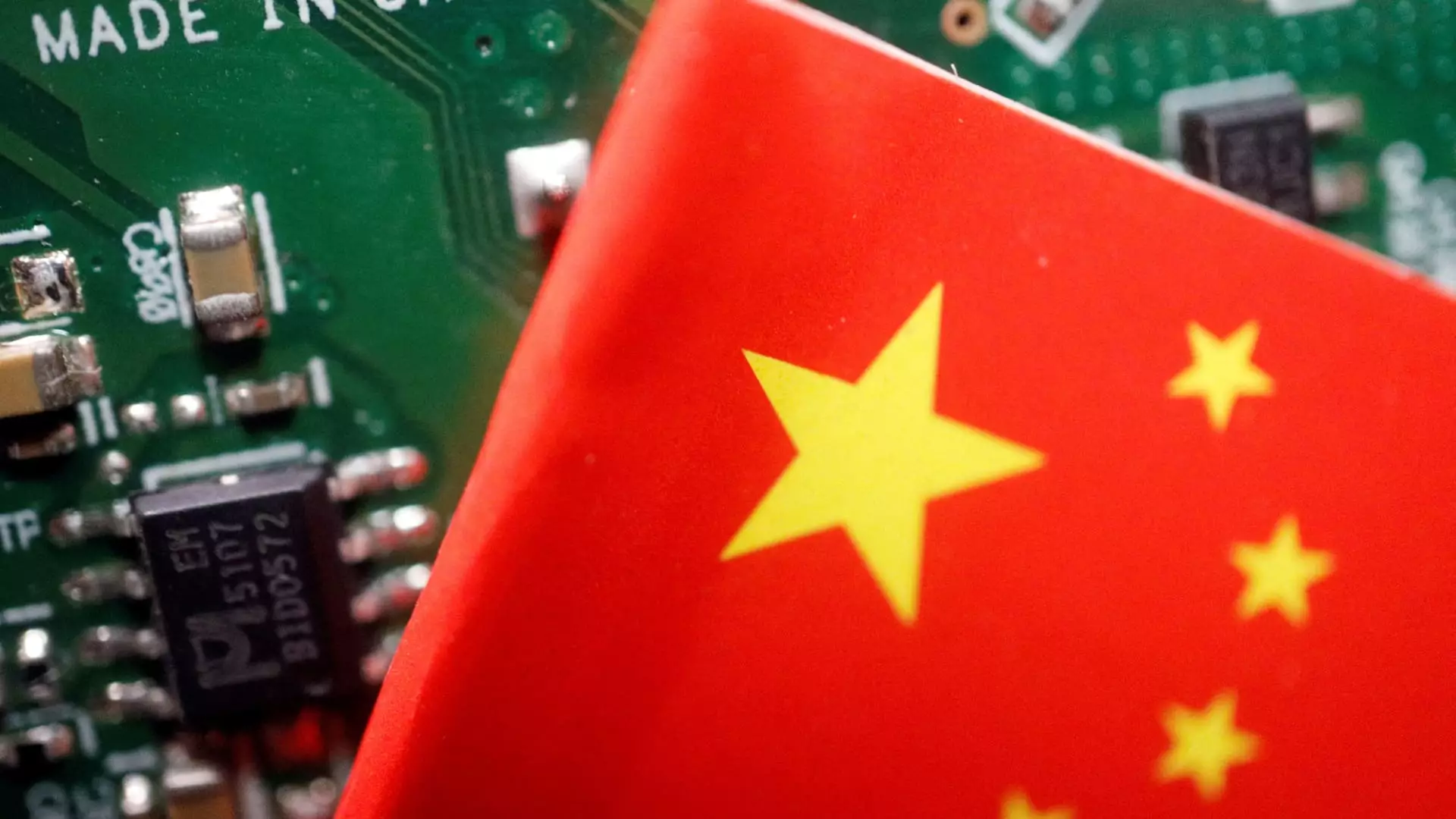The semiconductor industry, pivotal to global technology, has recently been thrust into the spotlight due to ongoing geopolitical tensions, particularly between the United States and China. Despite facing a fresh wave of U.S. export restrictions, major Asian chip stocks, particularly those outside China, demonstrated remarkable resilience. The recent actions targeted Beijing’s military capabilities, aiming to derail its progress in advanced chip production.
On an encouraging Tuesday, shares of Taiwan Semiconductor Manufacturing Company (TSMC), the leading contract chip supplier globally, surged by 2.4%. This upward momentum was echoed across various Japanese tech firms, showcasing a robust market sentiment. Notable gains were witnessed in Tokyo Electron, which rose by 4.7%, and Lasertec, soaring 6.7%. Other significant players, like Advantest and Renesas Electronics, also reported growths of 3.9% and 2.2%, respectively. Furthermore, Softbank, a major stakeholder in the innovative British chip designer Arm, enjoyed a 3.6% increase in its share price.
This optimistic climate is perplexing given the Biden administration’s fresh semiconductor export controls, which directly target high-bandwidth memory chips—critical components for several tech conglomerates, including the South Korean giants SK Hynix and Samsung. Remarkably, both companies reported stock increases as well, with SK Hynix climbing 1.8% and Samsung Electronics up by 0.9%. This defiance amidst external pressures suggests a complex interplay within the semiconductor market.
In the wake of these developments, Derrick Irwin, a portfolio manager at Allspring Global Investments, shared his perspective on CNBC’s “Street Signs Asia.” He posited that while the export restrictions would undoubtedly impact South Korean chipmakers, the broader implications might be mitigated by the ability to redirect product demand towards alternative markets like the U.S. His insight underscores a strategic adaptability prevalent among these firms, reflecting a calculated response to evolving market conditions.
Experts continue to underscore the delicate balance in the semiconductor sector. While U.S. restrictions aim to throttle China’s access to advanced chip technology, significant ramifications for companies like SK Hynix and Samsung may be limited due to their established global supply chains.
The recent export decisions from the U.S. Department of Commerce involved restricting imports to 140 Chinese companies, including the notable Naura Technology Group, ACM Research, and Piotech. This move reflects the Biden administration’s broader strategy to impede China’s attempts to achieve self-sufficiency in advanced technologies critical for national security.
The introduction of specific controls on 24 types of manufacturing equipment and several software tools underlines a comprehensive approach to compliance and regulation. Yet, questions linger regarding the effectiveness of these strategies. For instance, previous reports indicated that TSMC chips found their way into Huawei products, leading to skepticism about the completeness of export controls.
Increased regulatory measures, including a new “red flag guidance,” attempt to enhance compliance but also reflect challenges in thoroughly supervising such a multifaceted global industry.
As the semiconductor landscape undergoes seismic shifts, the resilience exhibited by Asian chip stocks amid U.S. sanctions raises critical questions about adaptability. While the immediate impacts of these restrictions pose challenges, firms like TSMC, SK Hynix, and Samsung are adopting strategies to bolster their market positions.
In a complex, interconnected world, the semiconductor sector continues to reveal its capacity for innovation and adjustment, showcasing that while geopolitical tensions may influence short-term performance, strategic management and diversification can sustain growth in the long term. With the backdrop of increasing digitalization, the future of the semiconductor sector remains optimistic, albeit tempered with caution as global stakeholders navigate these turbulent waters.
This emerging narrative highlights the importance of flexibility in business strategy, as companies must remain responsive to external pressures while pursuing technological advancements essential for sustaining their competitive edge.

